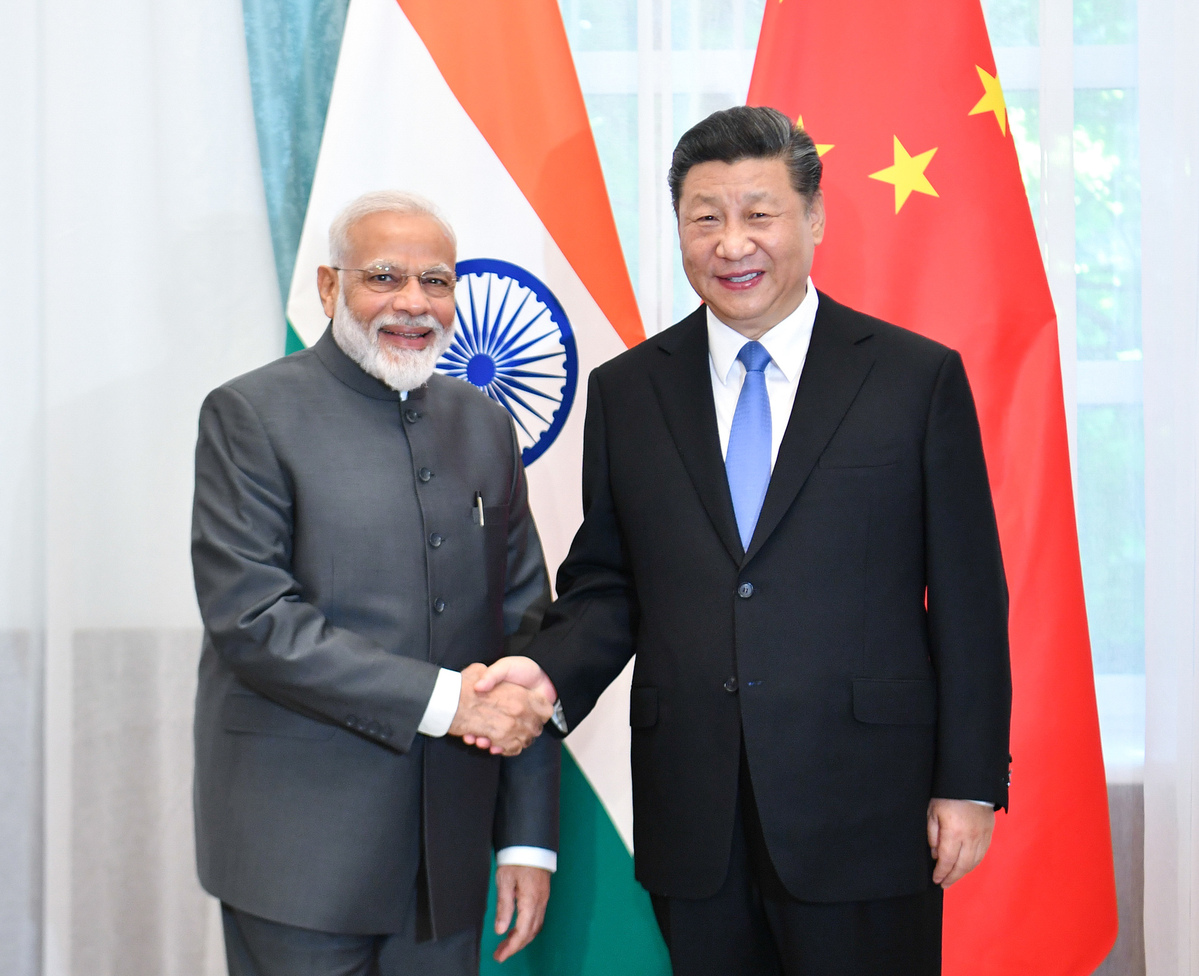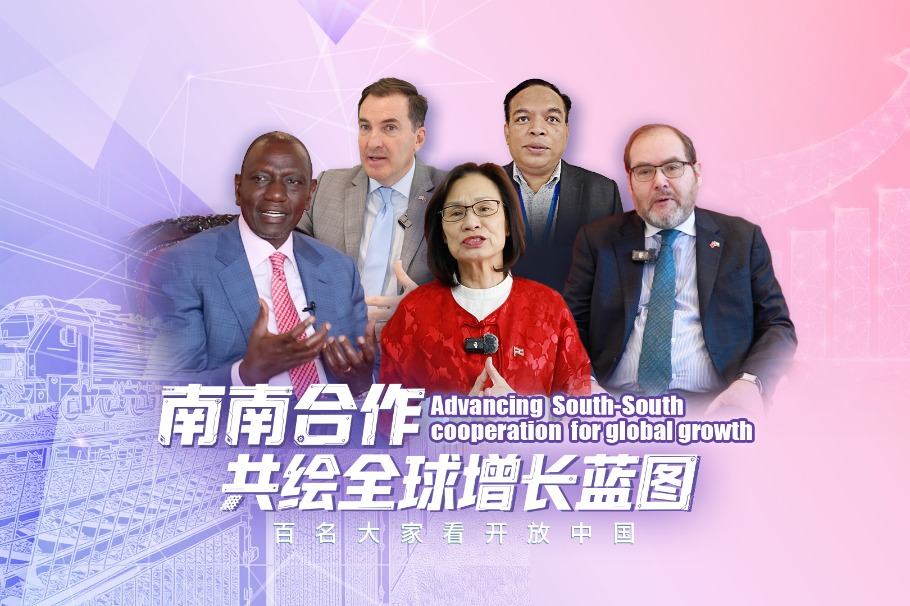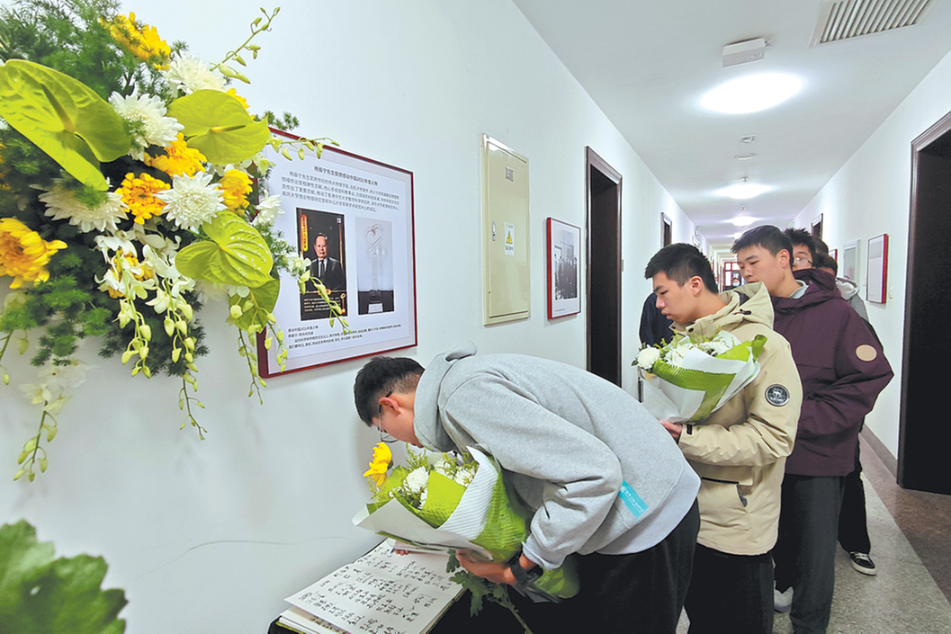Scholars urge further boost to Sino-Indian ties
By SATARUPA BHATTACHARJYA | CHINA DAILY | Updated: 2020-04-10 08:58

This year marks 70th anniversary of diplomatic relations between neighbors
A video conference of scholars was held on April 1-the 70th anniversary of the establishment of diplomatic relations between China and India-where creating a public understanding of the relationship and government communication on contentious issues were among the topics discussed.
The two neighbors have halted many planned events to mark the anniversary amid the COVID-19 pandemic.
According to Li Li, director of the Center for South Asian Studies at Tsinghua University, who was a moderator at the event, much has been achieved in Sino-Indian relations "in spite of the ups and downs".
The relationship has witnessed an overwhelming influence of the security agenda, said Joe Thomas Karackattu of the China Studies Center at the Indian Institute of Technology in Chennai, at the forum, which was organized by the Tsinghua Institute of Belt and Road Initiative.
He said many tend to approach the relationship through the balance-of-power or pro-globalization perspectives. But to increase trust the "old fragmented processes" must change.
"We need to build social capital,"Karackattu said. "We don't have dense horizontal networks between people (of the two countries)."
There are fewer commercial flights between Beijing and New Delhi than there are between Beijing and Bangkok, said Li Qin, another panelist and a Chinese lawyer.
Li Qin also called social capital a key ingredient for the future of the relationship. He said his classmates had mocked him for joining an Indian law firm after graduating because people in China and India used to prioritize the West.
"With more new blood such stereotypes will dissolve," he added.
India was among the earliest countries to open an embassy in China. But the two countries did not post ambassadors for 15 years after a war.
The unresolved border dispute has often strained relations between the two Asian giants.
Rong Ying, vice-president of the China Institute of International Studies, said he views the relationship on a positive future trajectory but in the meanwhile, managing differences through dialogue is important.
"China and India are opportunities for one another not threats to each other," Rong said.
Structured talks on the border dispute are being held since a special representatives' mechanism was set up in 2003.
Srikanth Kondapalli, chairman of the Center for East Asian Studies, Jawaharlal Nehru University in New Delhi, said a "strategic leadership communication" was provided by the two informal meetings between President Xi Jinping and Indian Prime Minister Narendra Modi in 2018 and last year.
"Institutional stability is important to address any China-India issues," he said.
Fresh chapter
Providing goods and services to the international community during the pandemic would be a fresh chapter reflecting the rise of the two countries, he added.
Shi Zhiqin, executive director of the Tsinghua Institute of Belt and Road Initiative, said even as the world is at a critical moment, globalization will continue, "so we hope China and India will play more important roles".
Long Xingchun, director of the Center of India Studies at China West Normal University in Sichuan province, urged "more high-level strategic dialogue" and spoke of what he called traditional issues such as the border dispute, "third-party factors" and the $53.57 billion trade deficit (on India's side).
Mohammed Saqib, secretary-general of the India-China Economic and Cultural Council, a nonprofit organization, described the ties as a "roller coaster" relationship.
The India-China relationship will also depend on their ties with the United States, he added.
Li Li also said that the pattern of the Sino-Indian relationship is changing as evident from a new momentum in business.
The two countries engaged in neighborly economics earlier but have become more interdependent, said Aravind Yelery, a researcher at Peking University.
Mao Keji, a research fellow at the National Development and Reform Commission in Beijing, said India is not ready for a labor-intensive export-driven system yet but the future of this cooperation is promising.
























